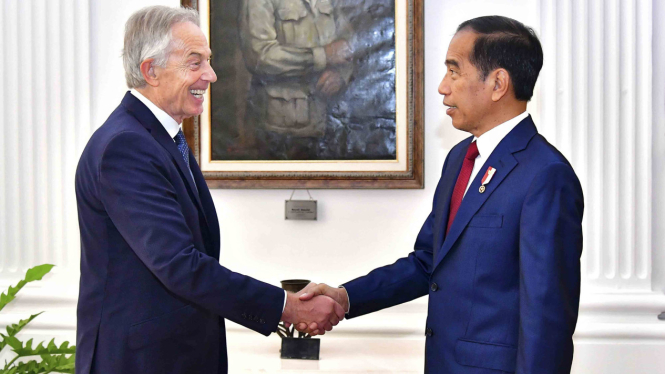VIVAnews – Tugu Tani (Farmer's Monument) will always be a landmark around Kwitang, Central Jakarta. Yet, the stories of Kwitang are not only limited to the memorial.
According to the legend, Kwitang is also famous as the land of the fighters. The Batavian fighters from Kwitang add to the legend of other famous silat fighters in Jakarta such as Si Pitung or Jampang.
Still, the epic was not only about those names. Only a small number of people who recognize that Kampung Kwitang also had a tough silat fighter. He was Kwik Tang Kiam.
Kwik Tang Kiam was a Chinese fighter. The young man's high skill on martial art influenced the people in Kwitang village.
”He was very famous in this village. My grandfather even said that the Betawi community at that time called this area as Kwik Tang's village and eventually this place called Kwitang,” an elder of Kwitang Habib Abdul Rahman told VIVAnews at his residence on Jalan Kembang V No.50, Kwitang, Central Jakarta.
The story began on the 17th century when a traveler from China, Kwik tang Kiam, stepped in Batavia. Legend has it that Kwik Tang Kiam had been wandered to every corner in Indonesia.
The traveler, who was also a medicine trader, then stayed in one of the villages in Betawi. In addition to being an expert in composing medicines, he also mastered martial arts.
Kwik Tang Kiam shared his martial arts skill to the people who lived around his home.
”There were many Betawi people who mastered silat, one of them was Mat Zailani. The famous silat style is called Si Ulung [a mixture between physical and spiritual power],” said the 67-year-old man.
Kwik Tang Kiam's great skill on silat was acknowledged by the Betawi community at that time. He taught silat which applied effective movements similar to the Shaolin style combining power, physical strength and speed.
It was very different to Betawi silat style which was more spiritual. Still, Kwik Tang Kiam respected the greatness of the Betawi spiritual style.
“They said that since that moment, Kwik Tang Kian settled in this village, and many elders in [the village] said he eventually was converted to Islam,” he explained.
Another story said that Kwik Tang Kiam was a wealthy landlord. Almost all land-plots in the area were his.
Given the vast area of land, the Betawi community called the area Kwik Tang's village. It was also said that Kwik Tang had a single child who enjoyed gambling and drinking.
After Tang Kiam passed away, his child sold every plot of his father's land to an Arab merchant.
After that incident, many Arab descendants live in Kampung Kwitang.
Other than silat, Kampung Kwitang has been known for its majelis taklim (Islamic study group). “The Betawi people in Kwitang are devout Muslims even though there are many Chinese,” he said.
It is now different from the old days. The greatness of the fighters from Kampung Kwitang is almost gone.
People in Jakarta identify Kampung Kwitang as a place for second-hand or new book stalls.
“Well, this is today's face of Kwitang. But don't forget the fact that children from Kwitang are still mastering silat. They'll buy your challenge,” he said.
--
Translated by: Ariyantri E. Tarman


















